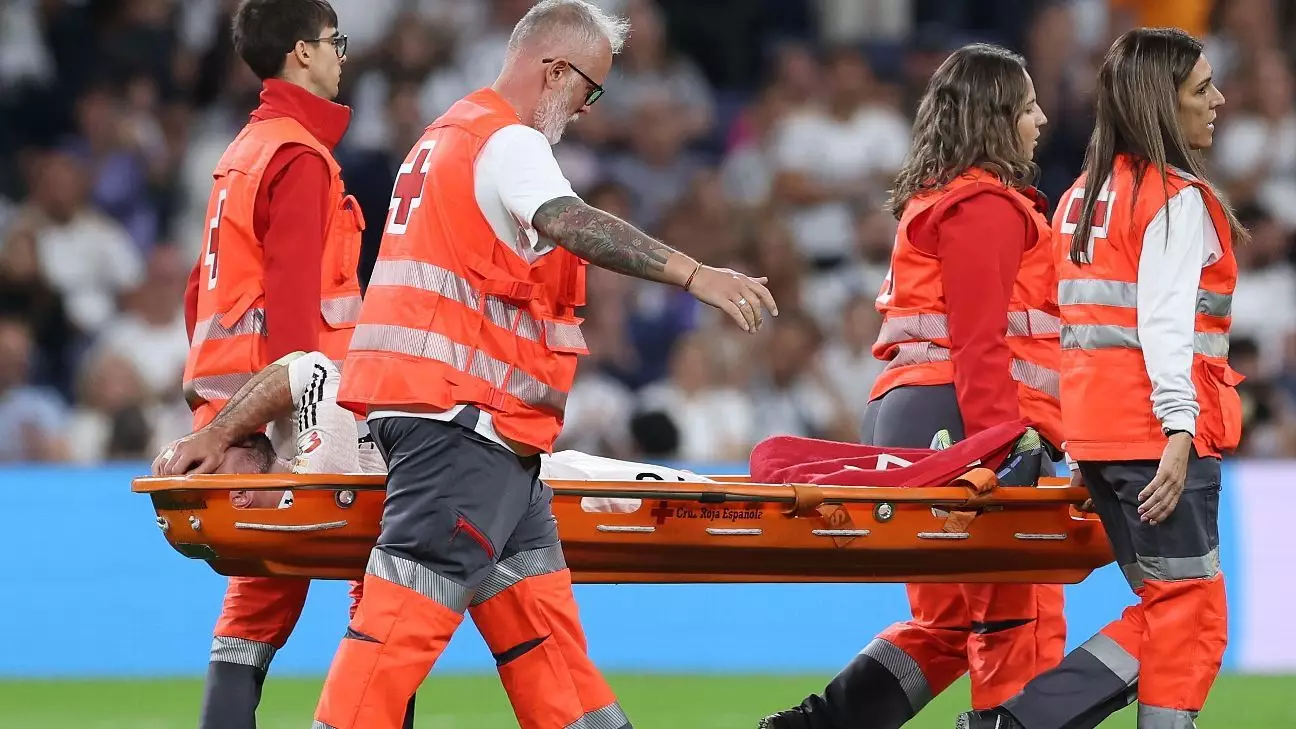The unfortunate injury to Dani Carvajal during Real Madrid’s recent match against Villarreal has raised significant concerns for the club’s defensive lineup. The seasoned right-back suffered substantial damage to his right leg, resulting in a ruptured anterior cruciate ligament, collateral ligament, and popliteus tendon. With surgery on the horizon, Madrid faces the challenge of navigating the January transfer window without one of their key players. As the club seeks a replacement to fill the gap left by Carvajal, it must take a strategic approach to maintain its competitive edge in LaLiga.
For any club of Real Madrid’s stature, the search for a suitable player to replace an injured star is no small feat. Sources indicate that since Carvajal’s injury, the club has received offers for more than ten different players. However, securing any of these prospects will be complicated, particularly as they are tied to other clubs, making mid-season negotiations a delicate and often unsuccessful endeavor.
The club’s focus seems to pivot heavily towards Liverpool’s Trent Alexander-Arnold, a player Madrid has been monitoring closely. While previously viewed as a potential market opportunity for the future rather than an immediate necessity, Carvajal’s injury has elevated Alexander-Arnold’s profile within the team’s urgent requirements. Madrid’s interest is justified; his extensive international experience and skill set align with the club’s aspirations. Nonetheless, the uncertainties surrounding Alexander-Arnold’s intentions to remain at Liverpool create a hurdle that could hinder Madrid’s pursuit.
In addition to Alexander-Arnold, Madrid’s scouting network is certainly expanding its horizons to consider other candidates capable of stepping in during this critical time. Notably, Madrid’s summer transfer saga saw them miss out on key prospects, leading to a potentially thinner defense than desired. The club’s tactical arsenal currently includes Lucas Vázquez, who has been converted from winger to right-back. While Vázquez is a dependable player, doubts linger within the club regarding his capability to fulfill the role consistently as a starter.
Further complicating matters is the club’s already depleted defensive roster. Coach Carlo Ancelotti is seeking to bolster defensive options, especially after the missed opportunity to sign centre-back Leny Yoro last summer. With Éder Militão and Antonio Rüdiger as the first-choice pairing, the bench remains shallow, particularly as David Alaba continues to recover from an injury. The versatility of midfielder Aurélien Tchouaméni and defender Jesú Vallejo offers scant reassurance, leading to urgent calls for reinforcements.
While the immediate aim will be to strengthen the right flank, Madrid understands the need to look beyond just the quick fix. Discussions about securing Alphonso Davies from Bayern Munich have been ongoing, with the aim of potentially acquiring him for the future. However, convincing Bayern to part with one of its prized assets mid-season is far from straightforward, given their aspirations for ongoing success and the player’s own integral role in their lineup.
The circumstances of Carvajal’s injury may also prompt Real Madrid to invest in younger, more sustainable talents for the long haul. However, should the club find itself uncertain of a prospect’s suitability, it may opt to hold steady with its current squad. This strategy was previously employed when they could not land Yoro, underscoring the importance of an astute approach rather than rushing into hasty decisions that could undermine team stability.
As Real Madrid grapples with the fallout of Carvajal’s injury, it finds itself at a crossroads that intertwines immediate needs with long-term strategy. Balancing the urgency to find a replacement while weighing potential candidates’ effectiveness will define their success in the transfer window. The situation serves as a reminder of the ever-evolving nature of football, where injuries can significantly impact a club’s trajectory and future ambitions. For Madrid, navigating these waters effectively will require both acumen in the transfer market and faith in existing talents.

Leave a Reply